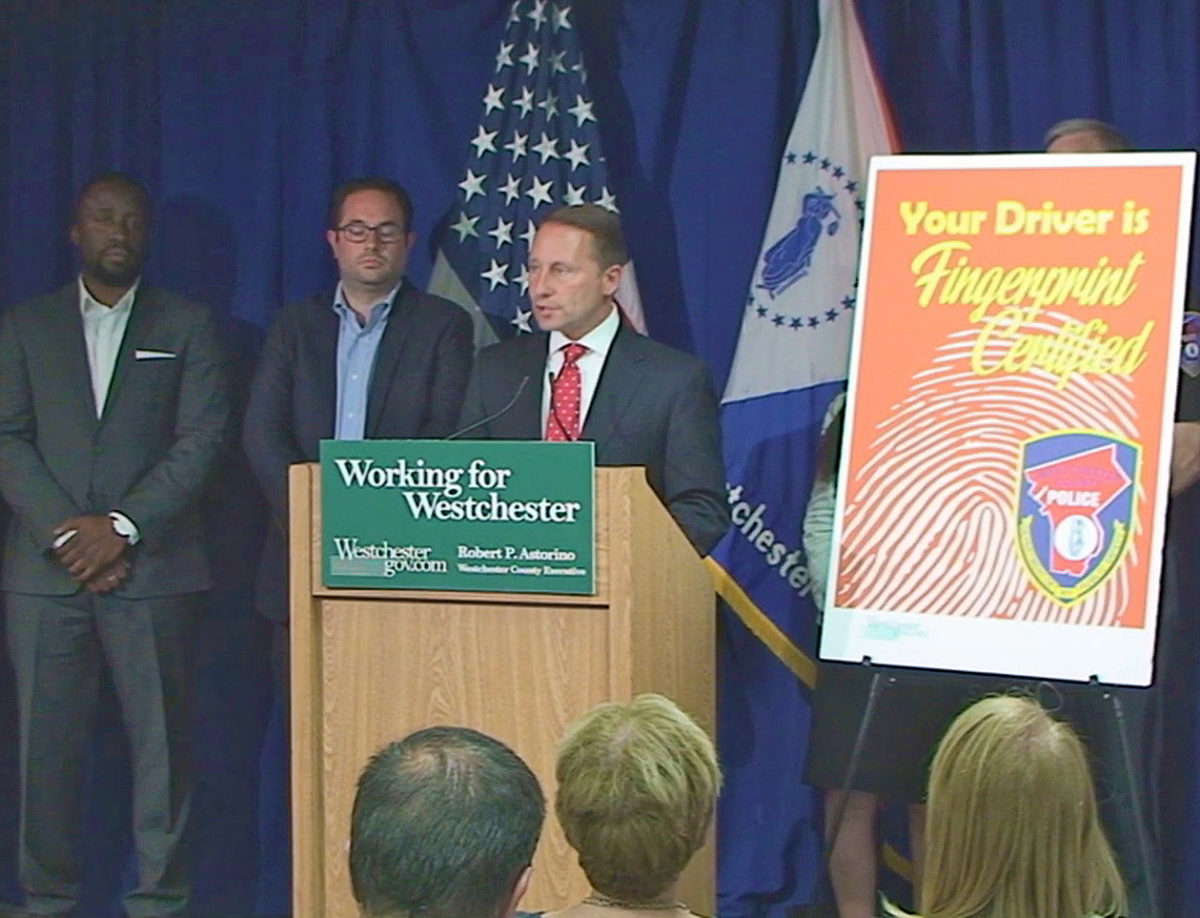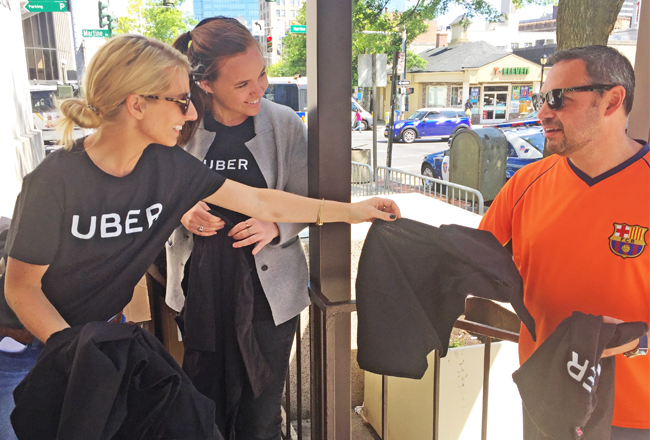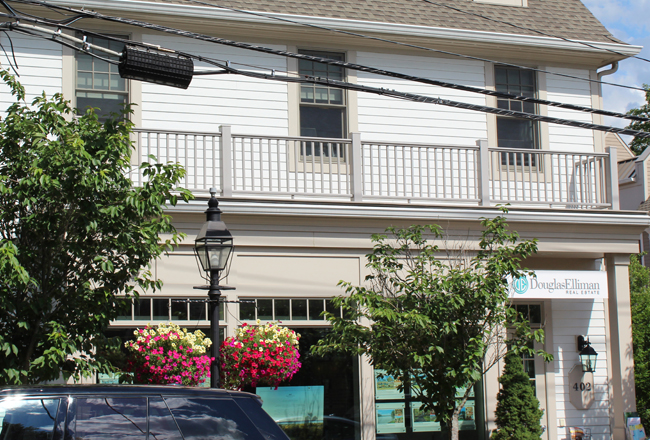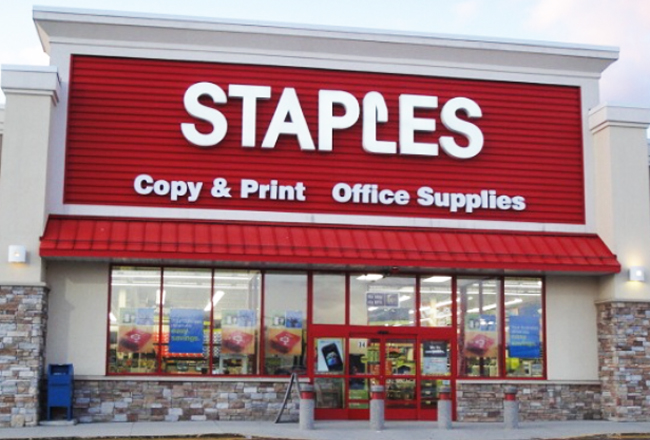
Westchester County officials have unveiled a plan they believe will help ease some safety concerns regarding the expansion of ride-sharing companies like Uber and Lyft into Westchester.
Called “Thumbs Up,” the program will allow ride-share drivers to voluntarily submit to fingerprint checks, an issue that had been a point of contention for many government officials.
“Our goal was to find the right balance between safety and convenience,” Westchester County Executive Robert P. Astorino said during a press conference just days before the legislation went into effect. “Ride-sharing companies provide the public with an important transportation option. But if that convenient ride is not safe, it”™s not really an option at all.”

Drivers who pass the $90 fingerprint checks, which they must fund themselves, will be issued a decal by the county to be posted on their windshield. However, customers will be unable to see if their prospective driver has been fingerprinted through the Uber or Lyft apps.
“Ride-sharing is not supposed to be hitchhiking with an app,” Astorino said. “The public has the right to know that the driver picking them up has been fully screened for a criminal record.”
Officials from Lyft and Uber, who were present at the June 27 press conference announcing the initiative, said they plan to encourage drivers in Westchester to participate in the program.
“We feel this is a good compromise that balances the needs of the legislature and the county executive with the requirements of the state law,” said Uber spokesperson Josh Gold.
The expansion of ride-sharing companies into New York state was agreed upon by lawmakers and Cuomo as part of the state”™s $153 million budget for the 2017-18 fiscal year. However, the state included a stipulation that allows county governments and four major cities ”“ Rochester, Yonkers, Syracuse and Buffalo ”“ the option to block ride-sharing companies from picking up passengers within their municipal limits.
“The legislature will continue to hold the option to opt out at a later date if Uber and Lyft at any time do not operate in good faith or fail to make public safety their priority,” said County Board of Legislators Chairman Michael B. Kaplowitz, a Democrat.
On Wednesday afternoon, just hours before the law was set to take effect, the state Department of Motor Vehicles approved licenses for Uber and Lyft to operate in New York State.
[vsw id=”Lpx7gAHgoSE” source=”youtube” width=”650″ height=”440″ autoplay=”no”]County officials said they will continue to work with taxi and limousine companies to ease their regulatory burdens to ensure a level playing field. Edward Stoppelmann, president of Red Oak Transportation in Port Chester, noted that drivers licensed by the county Taxi and Limousine Commission have always been subject to mandatory fingerprinting and drug testing. “The Livery Industry Council of Westchester, which represents the for-hire companies in the county, will continue working with the county executive and Taxi and Limousine Commission leadership to ensure that public safety remains its top priority,” he said.
John Ravitz, executive vice president and COO of the Business Council of Westchester, said that while not opposed to transportation network companies like Uber and Lyft, the Business Council thinks those companies should be subject to the same rules and regulations as taxi and limousine companies. Ravitz added that the organization lobbied the state Legislature on behalf of the Westchester Livery Association, advocating that if regulatory mechanisms are already in place in counties around the state, as is the case with Westchester, “then the regulation of transportation network companies is better served by those counties.”
Westchester County legislators held a public hearing on ride-sharing on June 28. Though legislators did not vote on whether the county would opt out of the state law, residents and local business owners voiced their opinions. “If this was a compromise bill, I say the only thing that was compromised was public safety,” said Pasqualino Russo, an attorney and former chief administrative law judge of the New York City Taxi and Limousine Commission.
Arthur Goldstein, attorney for the Taxicab Service Association, said the proposed fingerprinting plan “is not going to work.” Goldstein cited information from the county”™s Taxi and Limousine Commission that around 30 percent of those who apply to become a driver are rejected because of their fingerprinting check.
“If it”™s a voluntary program, and you know you”™re going to get rejected, you”™re not going to go through with it,” he said.
Still, a number of Westchester residents who drive for ride-sharing companies in nearby states shared their excitement at the prospect of working closer to home. “Right now I work in New Jersey and Connecticut and I spend my money there,” said ride-share driver Mark Hoffmeister. “I get gas in Connecticut and New Jersey. I buy food there when I work. Now I can do that back home.”
Uber employees were also on hand at the steps of the Michaelian Office Building in White Plains during the hearing, collecting information from prospective drivers and handing out T-shirts to passersby.
“It”™s a great idea to find somewhere where I can just pick up an extra shift, extra income,” said Westchester resident and prospective Uber driver Aaron Ortiz. “And doing that with Uber seems to be a great idea.”




















